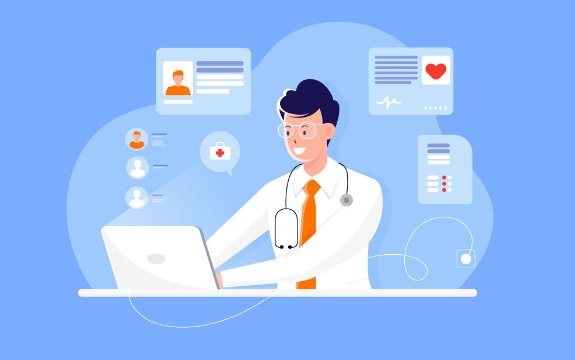In the fast-paced world of healthcare, the integration of technology in hospital information systems is key to improving patient care and operational efficiency. With the help of advanced software and hardware solutions, hospitals are able to unlock the full potential of their systems and revolutionize the way healthcare is delivered.
Streamlining Operations with Electronic Health Records
Electronic Health Records (EHR) have transformed the way patient information is stored and accessed. By digitizing medical records, hospitals are able to streamline their operations and provide healthcare professionals with real-time information about their patients. This not only saves time but also reduces the risk of errors and improves the overall quality of care.
Enhancing Communication and Collaboration
Hospital information systems also play a crucial role in enhancing communication and collaboration among healthcare professionals. Through secure messaging platforms and video conferencing tools, doctors and nurses are able to easily communicate and consult with one another, leading to better coordinated care and improved patient outcomes.
Improving Decision-Making with Data Analytics
Data analytics is another area where hospital information systems are making a significant impact. By analyzing large amounts of data, hospitals are able to identify trends, track outcomes, and make informed decisions about patient care. This not only improves the quality of care but also helps hospitals optimize their resources and reduce costs.
Ensuring Patient Safety and Security
With the increasing amount of sensitive patient information being stored electronically, hospitals must prioritize the security of their information systems. By implementing robust security measures such as encryption, firewalls, and access controls, hospitals can ensure that patient data remains secure and confidential.
Embracing Telemedicine and Remote Monitoring
In recent years, telemedicine and remote monitoring have emerged as important tools in healthcare delivery. Hospital information systems play a crucial role in facilitating these services, allowing patients to connect with healthcare providers remotely and receive care without having to visit a physical clinic. This is especially important in rural or underserved areas where access to healthcare may be limited.
The Future of Hospital Information Systems
As technology continues to evolve, the potential of hospital information systems is only expected to grow. From artificial intelligence and machine learning to wearable devices and telehealth platforms, hospitals are constantly exploring new ways to leverage technology to improve patient care and operational efficiency.
In conclusion, the integration of technology in hospital information systems is revolutionizing healthcare by improving communication, enhancing decision-making, and ensuring patient safety and security. By unlocking the full potential of their systems, hospitals are able to provide better care to their patients and stay at the forefront of the ever-changing healthcare landscape.

